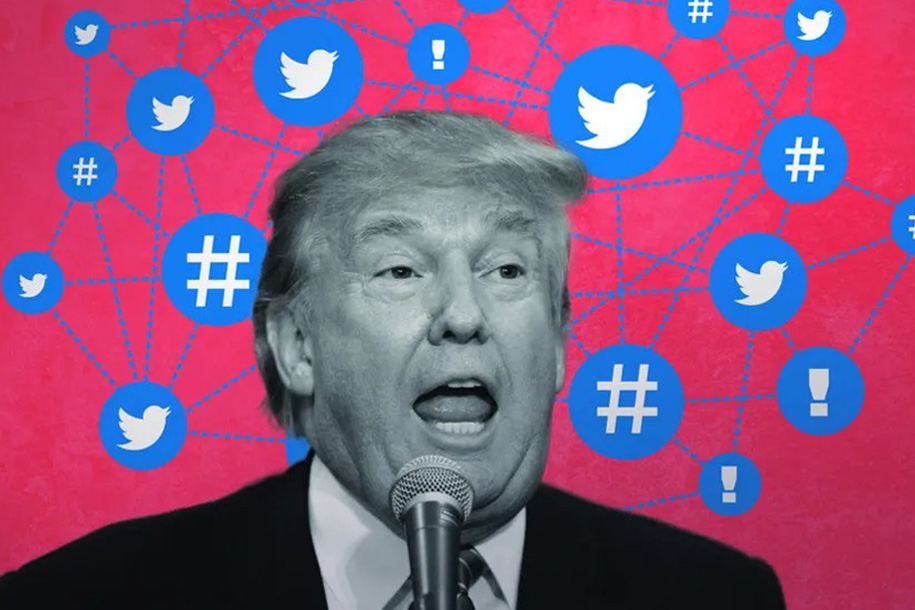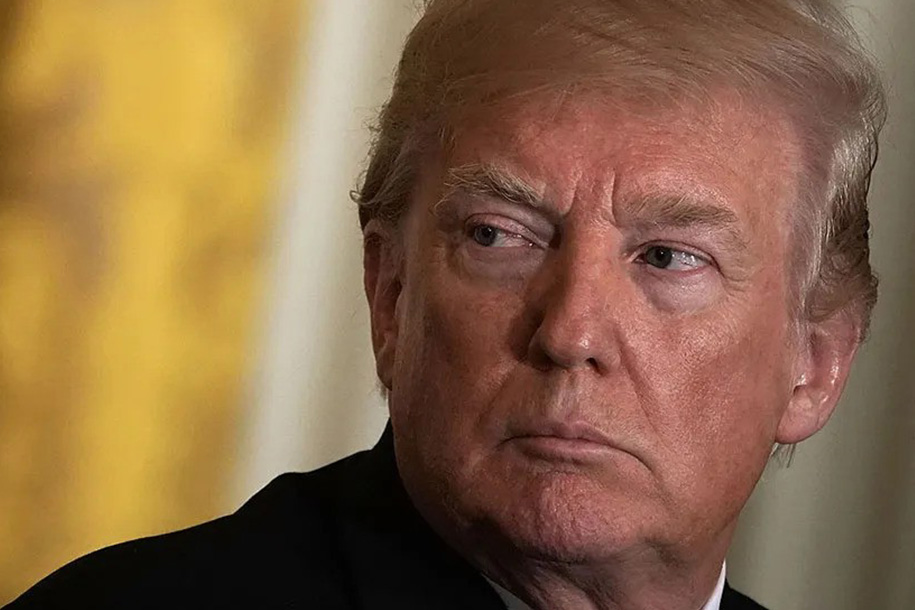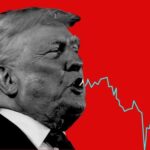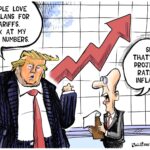Is Political Anxiety Fueling Fear Over Trump’s Actions?
What will President Trump do if special counsel Robert Mueller gets close to finding a smoking gun? Is Trump impulsive, unstable, desperate, and self-serving enough to bomb North Korea in order to distract Americans from the investigation? Maybe not, but the fear that he might creates political anxiety and stress among many Americans.
The Impact of Trump’s Policies on Political Anxiety
The jury may still be out on the impact of Trump’s policies, but the stress and anxiety created by his behavior is real and widespread. Many have lost sleep, suffered from headaches and stomach pain, and harmed relationships over political differences, due to Trump-induced anxiety.
Political Anxiety Escalates: Comparisons to Authoritarian Leaders
{mosads}His abrupt firing of FBI Director James Comey and reports that he asked Comey to drop the Flynn investigation are reminiscent of the way Vladimir Putin disposes of his critics. His false claim that Comey exonerated him, and his conflicting explanations of why he fired Comey are unsettling. But giving Russia classified information about ISIS that we received in confidence from Israel, our only Middle East ally, is alarming.
How Trump-Related Political Anxiety Impacts Mental Health
We’ve watched as Trump degraded his office, threatened relationships with our allies, lost their respect, and made America a laughing stock. Since the election, our connection to politics has become increasingly one of stress, anxiety, fear, and shame. Trump-related anxiety is so common it’s been given an unofficial diagnosis: post-election stress disorder.
Rising Levels of Political Anxiety Across America
The American Psychological Association recently reported that two-thirds of people are stressed about the future of the country, including nearly 60 percent of Republicans and 76 percent of Democrats. Mental health professionals nationwide are seeing a steady stream of patients that suffer from anxiety, depression, and sadness related to daily news about the Trump administration’s behavior, according to Kaiser Health News.
Symptoms of Political Anxiety in Patients
Nancy Molitor, 28 years a psychologist, says many of her patients are having trouble sleeping and focusing at work or are fighting more with family members. Other psychologists say patients are concerned about maintaining civil relationships with friends and loved ones with different political opinions.
Political Anxiety Eroding Trust Among Friends and Family
Psychologist Angela Londoño-McConnell notes, “People seem to be looking at those they know and love and wondering if they really knew them and if they can trust them.” “There has been nothing like this,” says William Doherty, a therapist for 40 years. “Nothing close.”
The Foreign Press and America’s Political Anxiety
Esther Lerman Freeman, clinical psychologist at Oregon Health & Science University said, “Patients report nights of shattered sleep.” She added, “when something is not predictable, it makes people more anxious.”
The foreign press has observed America’s anxiety. Die Zeit, a German national weekly newspaper, reported that many Americans “aren’t sleeping well, they are suffering from frequent headaches or stomach pains, they are nervous, suspicious and afraid.”
Political Anxiety Intensifies Over Trump’s Russian Connections
Concerns over Trump’s Russian connections intensified when he fired Comey and gave the Russians confidential information he received from Israel. Why does he cozy up to a man who strips Russian companies of their wealth to enrich his oligarchs and his ex-wife and daughter with multimillion-dollar mansions in France, and jailed his opponents?
Does Trump hope to lift sanctions to finally build Trump Tower in Moscow? After all, he’s been trying for 10 years and predicted in a 2007 deposition, “Russia is one of the hottest places in the world for investment,” and that, “We will be in Moscow at some point.” Is there a hidden agenda to sacrifice U.S. interests for personal gain?
Perhaps not, but can we be blamed for wondering? Trump asserts all such questions are part of an unprecedented “witch hunt.” But how can we believe anything he says? He has falsely claimed that he had a record electoral win and a record crowd at his inauguration, that he knows more about ISIS than our generals, that he can’t release his tax returns because he’s under audit and that President Obama tapped his telephones in Trump Tower.
He has also said, “I have nothing to do with Russia, for anything … to the best of my knowledge, no person that I deal with does.” What about Paul Manafort, Carter Page, Roger Stone, Michael Flynn, and Betsy Devos’s brother, Erik Prince, the billionaire founder of Blackwater?
The Urgent Need to Address Political Anxiety Through Investigation
It’s frustrating and depressing that Americans can’t believe what the President says. That lack of credibility also creates anxiety and frustration over his policy positions. He recently pivoted to less outlier, more mainstream positions on NAFTA, NATO and trade, but who knows if he’ll pivot back? Will he make good on his campaign threat to throw tariffs on Chinese imports to distract us from the Russian probe? That would start a trade war and throw the U.S. into recession.
Conclusion: Political Anxiety as a Call to Action
Damage done by bad policy, whether it’s healthcare, tax reform, or immigration, is palpable — it can be observed. But the damage done to the American psyche is insidious — not obvious. Consequently, it is not a motivation to act, but it should be. It is urgent that the special counsel and Congress, including Republicans, get to the bottom of the Russian investigation and finally determine if Trump should be removed. In the meantime, Republicans need to do a better job of reining him in.









Your point of view caught my eye and was very interesting. Thanks. I have a question for you.
Thank you for your sharing. I am worried that I lack creative ideas. It is your article that makes me full of hope. Thank you. But, I have a question, can you help me?
Thanks for sharing. I read many of your blog posts, cool, your blog is very good.
Your article helped me a lot, is there any more related content? Thanks!
Can you be more specific about the content of your article? After reading it, I still have some doubts. Hope you can help me. https://accounts.binance.com/en-IN/register?ref=UM6SMJM3
Thank you for your sharing. I am worried that I lack creative ideas. It is your article that makes me full of hope. Thank you. But, I have a question, can you help me?